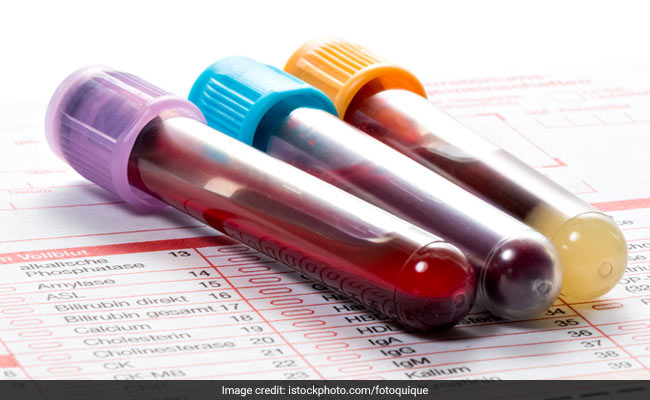
World Thalassemia Day 2018 is celebrated on May 8. The day is celebrated in order to raise awareness about thalassemia - a genetic blood disorder which is characterised by abnormal levels of haemoglobin in the body. A thalassemia major patient needs to get blood transfusion after 6 months of birth, or bone marrow transplant for survival. However, a thalassemia minor patient will only be a carrier of the blood disorder, and can otherwise live a normal life with normal life expectancy and normal functioning organs. Any abnormality or mutation in one or more genes which produces haemoglobin can cause thalassemia. The genetic disorder is inherited from parents.

World Thalassemia Day 2018: The day is celebrated on May 8
Photo Credit: iStock
You may develop thalassemia minor if any one of your parents is carrier of the disease. Thalassemia minor is a form of disease in which you won't have any symptoms but you will be carrier of the disease.
Also read: World Thalassemia Day 2017: All You Should Know About Thalassemia
This World Thalassemia Day, we speak to Dr Rahul Bhargava about thalassemia and some important things to be kept in mind. Read on...
1. Thalassemia minor is not a disease. A person with thalassemia minor is as normal as a normal human being. Thalassemia minor becomes problematic only when two thalassemia minor people decide to get married and plan pregnancy. When two thalassemia minor people plan a pregnancy, there are 50% chances that the child might be a thalassemia major. Blood transfusion starts after 6 months of birth of a thalassemia major child.
2. If one of the parents is thalassemia minor, then the child is 25% prone to getting thalassemia minor.
3. There is no cure for thalassemia until and unless the person gets a bone marrow transplant done.
Also read: 7-YO Kid Suffering From Thalassemia Gets A New Lease Of Life
4. People should make sure that they know if there are thalassemia minor or not, before getting married of before planning a pregnancy. Before going ahead, the mother needs to get a blood test done to see if the baby is thalassemia minor or major. You can continue with the pregnancy if the child is thalassemia minor.
5. Thalassemia minor baby is as normal as any other baby. S/he will have normal life expectancy, with no organ dysfunction and is capable to do everything which is possible in the world. He will only be the carrier of thalassemia.
6. People with thalassemia minor should not worry about their diet or their capabilities. It is only important to check status of thalassemia minor in you and your partner before you plan a pregnancy.
Also read: World Thalassemia Day: Symptoms, Causes And Treatment For Thalassemia
7. Normal levels of haemoglobin are 12 for females and 13 for males. Low levels of iron in the body can lead to low haemoglobin.
8. Low haemoglobin can either mean thalassemia minor or iron deficiency. Talk to your physician about thalassemia minor in case you are planning for a pregnancy or planning to get married.
9. Thalassemia is quite common in India. It runs into various communities. Sindhi population has 7% incidence of thalassemia minor, while Punjabis including Aroras will have 3 to 3.5% incidence of thalassemia minor. This means that 3 people in every 100 people will be thalassemia minor. Khatris have 3-4% incidence while Brahmins have around 2% incidence.
10. The blood disorder is genetic and hence almost every community has incidence of thalassemia minor.
(Dr Rahul Bhargava is Director of Haematology and Bone Marrow Transplant, Fortis, Gurgaon)
Disclaimer: This content including advice provides generic information only. It is in no way a substitute for qualified medical opinion. Always consult a specialist or your own doctor for more information. NDTV does not claim responsibility for this information.
Track Latest News Live on NDTV.com and get news updates from India and around the world

